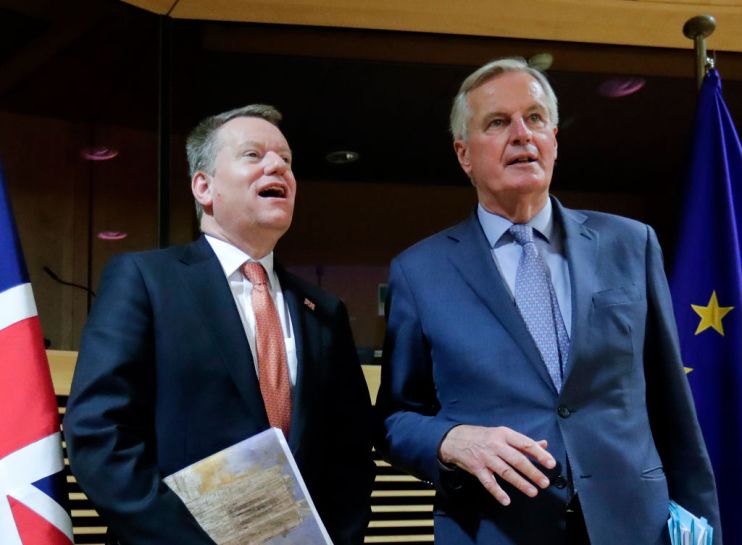With friends likes these… the UK is better off walking away than signing up to an EU deal

When it comes to Brexit deals, Australia may be a lot further away from the EU than Canada — but right now, it’s looking a fair sight better.
With time running out before the “crunch” EU summit which begins on Thursday, it appears likely that the UK will not get a Free Trade Agreement (FTA) anywhere near as good as Canada did. In fact, if the Withdrawal Agreement and the Northern Irish Protocol are retained, a trade agreement with the EU as favourable as Canada’s would be virtually impossible.
A new report co-authored by me for the Centre for Brexit Policy, entitled “The EU Deal Unmasked: Twelve Reasons Why the UK Will Fail to Get a Canada-Style Deal”, explains how, the way things are going, a UK-EU FTA is more likely to be Canada-minus than Canada-plus.
The Comprehensive Economic and Trade Agreement (Ceta) which the EU signed with Canada in 2017 provides for many benefits which almost certainly will be missing from a UK-EU FTA.
The most well-known of these relates to state aid. The Withdrawal Agreement requires the UK to remain aligned with EU’s strict rules on government support for ailing industries. Ceta contained no such obligation, sticking to normal WTO-style subsidies disciplines. The UK also remains subject to the European Court of Justice (ECJ) on state aid matters, whereas the ECJ plays no role in Ceta, since Canada is a country which staunchly defends its sovereignty both in terms of legislation and its judiciary.
The second most pressing of the Brexit issues — fishing — is also omitted from Ceta, leaving Canadian waters exclusively under Ottawa’s control. When it comes to the UK, however, the EU has made fishing access in UK waters going forward one of its reddest red lines.
The tone, attitude, and framing around these negotiations are also markedly different. For Canada, Ceta was simply a normal international treaty, ratified by a domestic statute which conforms to the Canadian Constitution. Not so for the future UK-EU FTA, since the Withdrawal Agreement is to be considered supreme over all UK law.
Accordingly, there is no requirement for any of Canada’s provinces to be carved off from the rest of the Confederation, subject to a separate regime of control by a foreign state which does not apply elsewhere in the country. Notoriously, the Northern Ireland Protocol does just that to the UK. The protocol also mandates tariffs and regulatory checks on an internal border within the UK — something which would never be permitted under the Canadian Constitution with respect to inter-provincial trade.
There had been high hopes that the EU would offer the UK something special on trade because Britain and Europe are “old friends”. This is not to say that Canada and the EU were enemies — as a Canadian myself, I know that they are strong allies. But Canada was never part of the family with a common history of regulatory alignment, nor does Canada rely so heavily on the EU for trade (and vice versa) as the UK does.
Sadly, these expectations were misplaced. The EU has even refused to recognise product testing by UK bodies for conformity with its standards, despite the fact that these bodies not only have their own robust reputations but have followed EU standards historically, and will do so for the foreseeable future. Yet this recognition was extended to unproven Canadian testing authorities under Ceta.
Moreover, while Ceta allows for normal remedies for a breach (the suspension of tariff concessions) as well as a continued role for the WTO courts, the Withdrawal Agreement permits the enforcement of arbitral awards and ECJ judgments by monetary penalties and precludes access to WTO dispute settlement. These are very harsh — and unfriendly — terms indeed.
Sometimes old friends become the worst enemies. Far from a Canada-plus arrangement, which the UK might have legitimately expected given its close ties with the EU and shared regulatory past, the FTA offer the UK is likely to get from Brussels will be inferior in many crucial ways.
Alas, it is beginning to look like tearing up the Withdrawal Agreement and walking away might be the best approach. Unless major concessions are made by the EU on a number of significant areas in the final moments, a no-deal Australian-style Brexit may be better than the inevitable Canada-minus disappointment.
Main image credit: Getty
